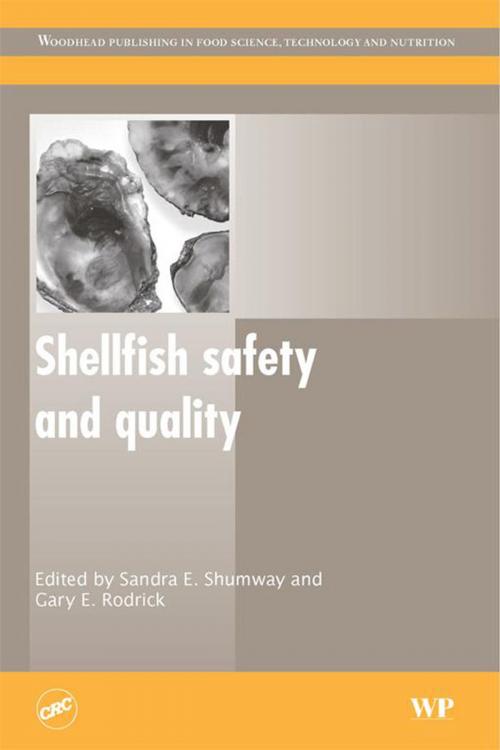| Author: | ISBN: | 9781845695576 | |
| Publisher: | Elsevier Science | Publication: | January 28, 2009 |
| Imprint: | Woodhead Publishing | Language: | English |
| Author: | |
| ISBN: | 9781845695576 |
| Publisher: | Elsevier Science |
| Publication: | January 28, 2009 |
| Imprint: | Woodhead Publishing |
| Language: | English |
Shellfish are a very popular and nutritious food source worldwide and their consumption has risen dramatically. Because of their unique nature as compared to beef and poultry, shellfish have their own distinct aspects of harvest, processing and handling. Edited by leading authorities in the field, this collection of review papers discusses issues of current interest and outlines steps that can be taken by the shellfish industry to improve shellfish safety and eating quality.
Opening chapters provide an overview of the key issues associated with microbial and biotoxin contamination. Parts two and three then address in more detail methods to improve molluscan shellfish and crustacean quality and safety. Chapters focus on detection of algal toxins, monitoring and mitigation of the effects of harmful algal blooms, metals and organic contaminants, biofouling, disease control and selective breeding. Part four reviews legislation, regulation, public confidence in shellfish and risk management. Chapters on post-harvest issues, such as depuration, storage and packaging complete the volume.
With its distinguished editors and international team of experts, Shellfish safety and quality is an essential reference for those in the shellfish industry, managers, policymakers and academics in the field.
- Reviews the latest research on significant hazards such as microbial and biotoxin contamination
- Discusses effective management of shellfish safety and quality, including emerging methods
- Examines improved packaging methods
Shellfish are a very popular and nutritious food source worldwide and their consumption has risen dramatically. Because of their unique nature as compared to beef and poultry, shellfish have their own distinct aspects of harvest, processing and handling. Edited by leading authorities in the field, this collection of review papers discusses issues of current interest and outlines steps that can be taken by the shellfish industry to improve shellfish safety and eating quality.
Opening chapters provide an overview of the key issues associated with microbial and biotoxin contamination. Parts two and three then address in more detail methods to improve molluscan shellfish and crustacean quality and safety. Chapters focus on detection of algal toxins, monitoring and mitigation of the effects of harmful algal blooms, metals and organic contaminants, biofouling, disease control and selective breeding. Part four reviews legislation, regulation, public confidence in shellfish and risk management. Chapters on post-harvest issues, such as depuration, storage and packaging complete the volume.
With its distinguished editors and international team of experts, Shellfish safety and quality is an essential reference for those in the shellfish industry, managers, policymakers and academics in the field.
- Reviews the latest research on significant hazards such as microbial and biotoxin contamination
- Discusses effective management of shellfish safety and quality, including emerging methods
- Examines improved packaging methods















